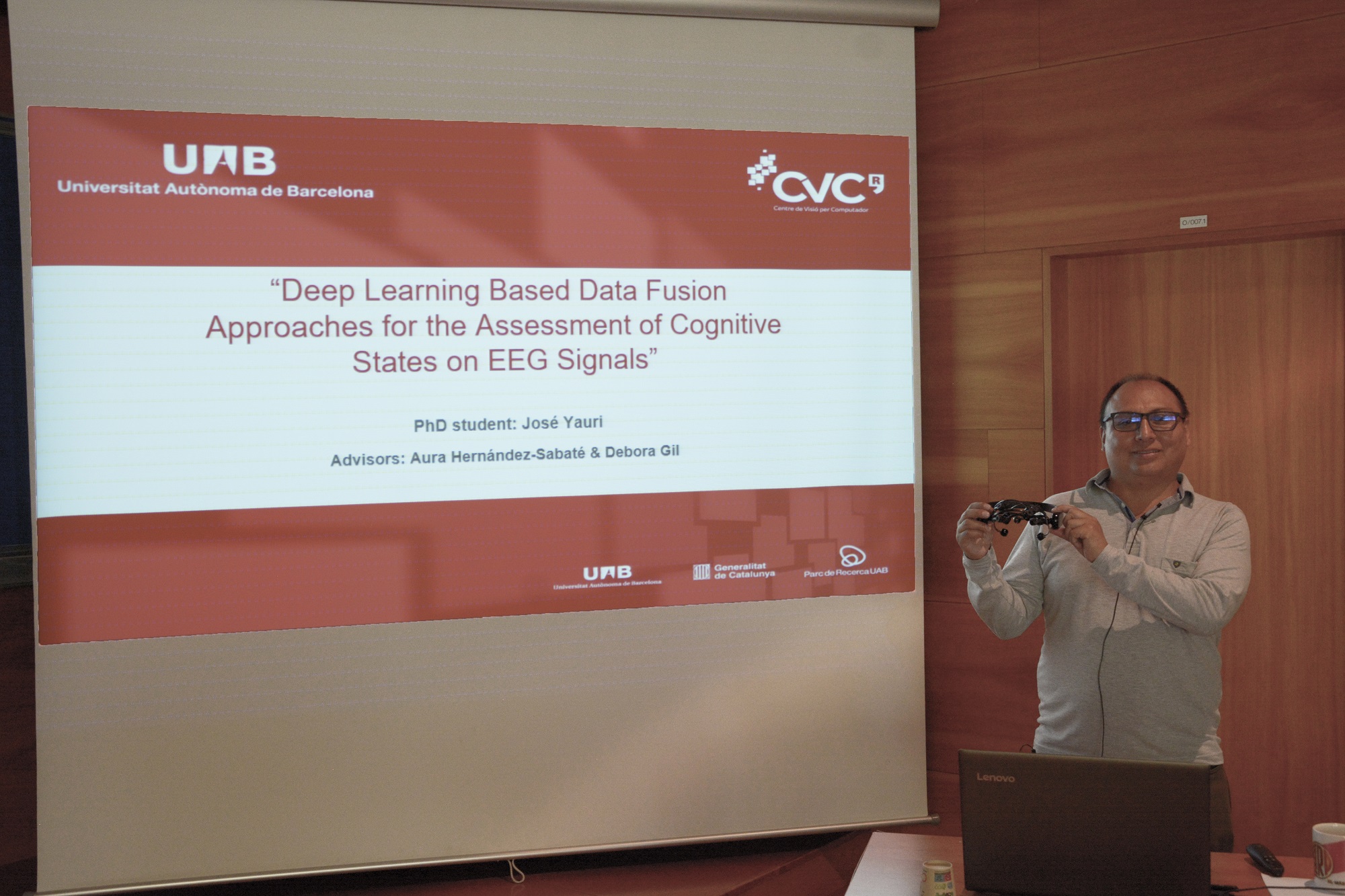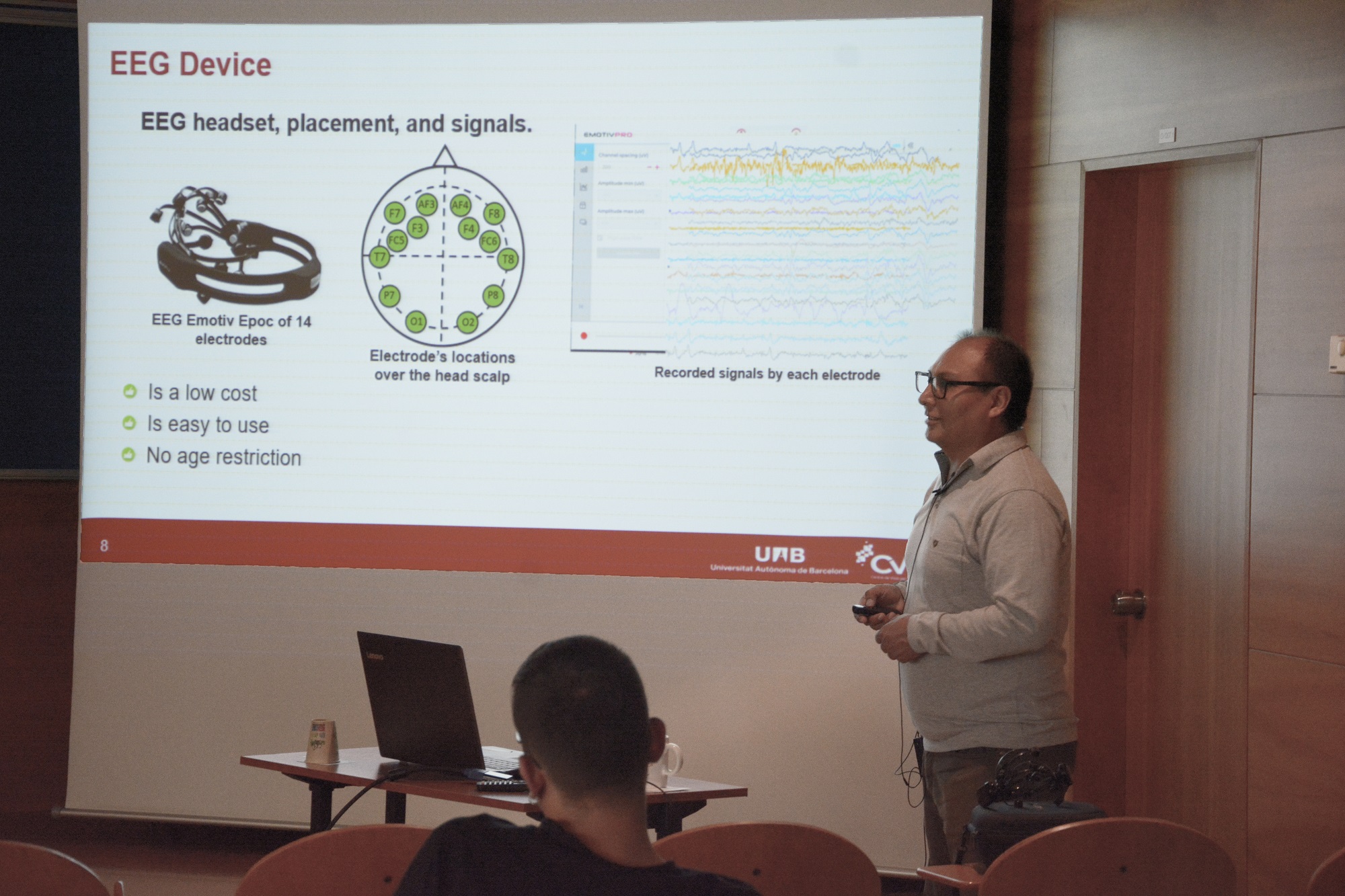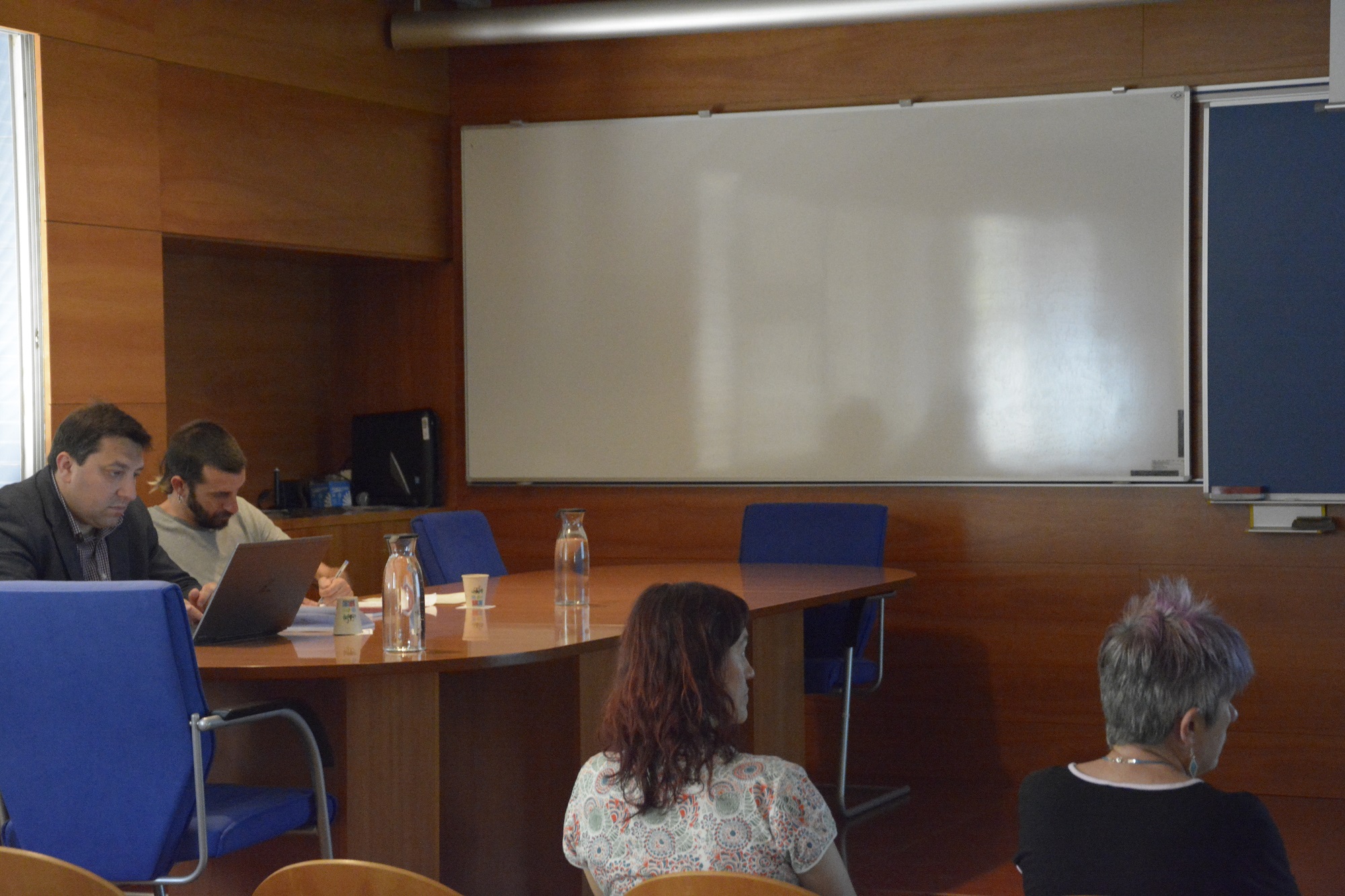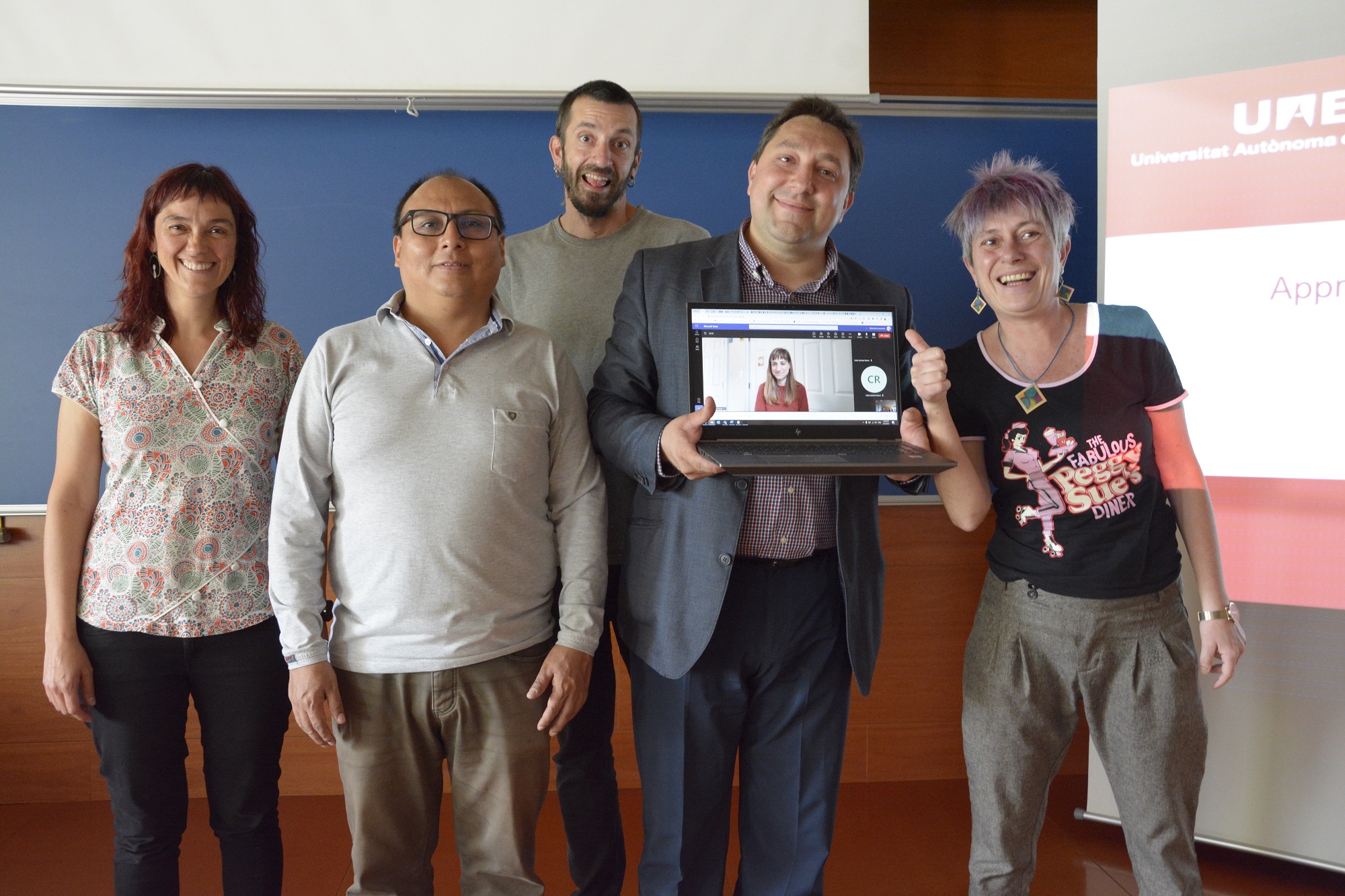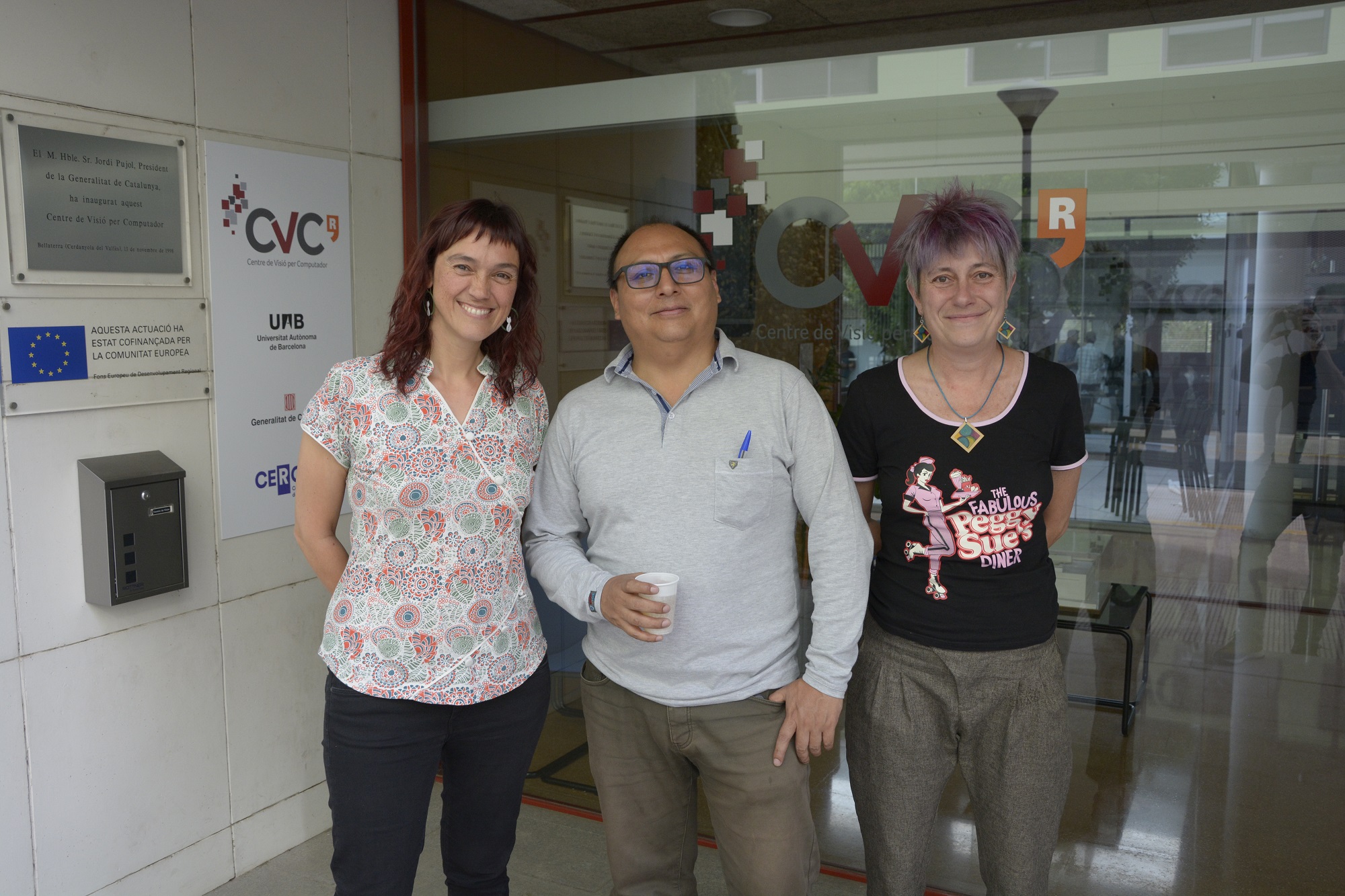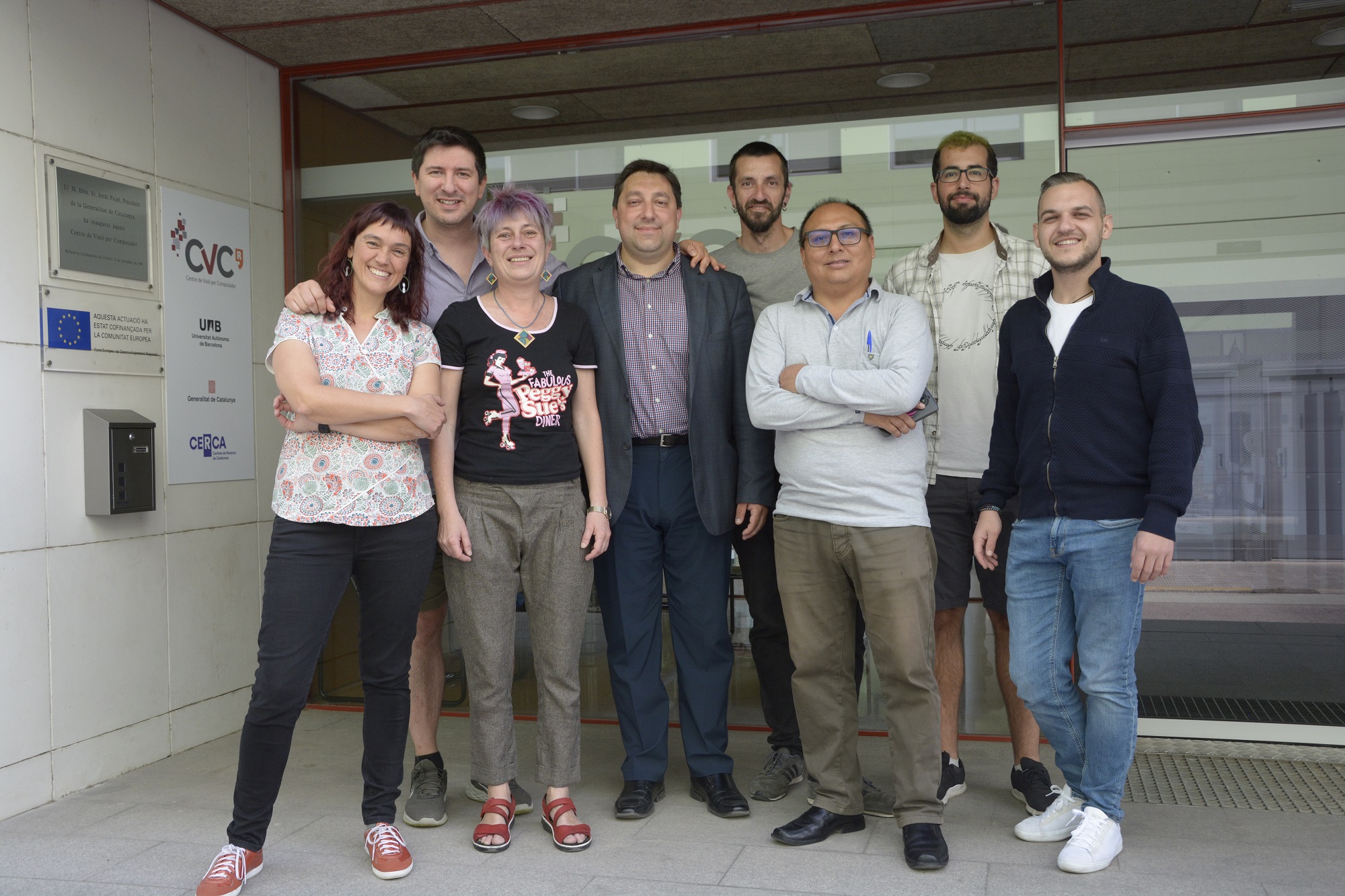
CVC has a new PhD on its record!
José Yauri successfully defended his dissertation on Computer Science on May 05, 2023, and he is now Doctor of Philosophy by the Universitat Autònoma de Barcelona.
What is the thesis about?
For millennia, the study of the couple brain-mind has fascinated humanity in order to understand the complex nature of cognitive states. A cognitive state is the state of the mind at a specific time and involves cognition activities to acquire and process information for making a decision, solving a problem, or achieving a goal.
While normal cognitive states assist in the successful accomplishment of tasks; on the contrary, abnormal states of the mind can lead to task failures due to a reduced cognition capability. In this thesis, we focus on the assessment of cognitive states by means of the analysis of ElectroEncephaloGrams (EEG) signals using deep learning methods. EEG records the electrical activity of the brain using a set of electrodes placed on the scalp that output a set of spatio-temporal signals that are expected to be correlated to a specific mental process.
From the point of view of artificial intelligence, any method for the assessment of cognitive states using EEG signals as input should face several challenges. On the one hand, one should determine which is the most suitable approach for the optimal combination of the multiple signals recorded by EEG electrodes. On the other hand, one should have a protocol for the collection of good quality unambiguous annotated data and an experimental design for the assessment of the generalization and transfer of models. In order to tackle them, first, we propose several convolutional neural architectures to perform data fusion of the signals recorded by EEG electrodes, at raw signal and feature levels. Four-channel fusion methods, easy to incorporate into any neural network architecture, are proposed and assessed. Second, we present a method to create an unambiguous dataset for the prediction of cognitive mental workload using serious games and an Airbus-320 flight simulator. Third, we present a validation protocol that takes into account the levels of generalization of models based on the source and amount of test data.
Finally, the approaches for the assessment of cognitive states are applied to two use cases of high social impact: the assessment of mental workload for personalized support systems in the cockpit and the detection of epileptic seizures. The results obtained from the first use case show the feasibility of task transfer of models trained to detect workload in serious games to real flight scenarios. The results from the second use case show the generalization capability of our EEG channel fusion methods at k-fold cross-validation, patient-specific, and population levels.
Keywords: deep learning, EEG, EEG channel fusion, cognitive states, mental workload, cognitive task transfer, dataset of mental workload, epilepsy detection.
*The defence was in Spanish



